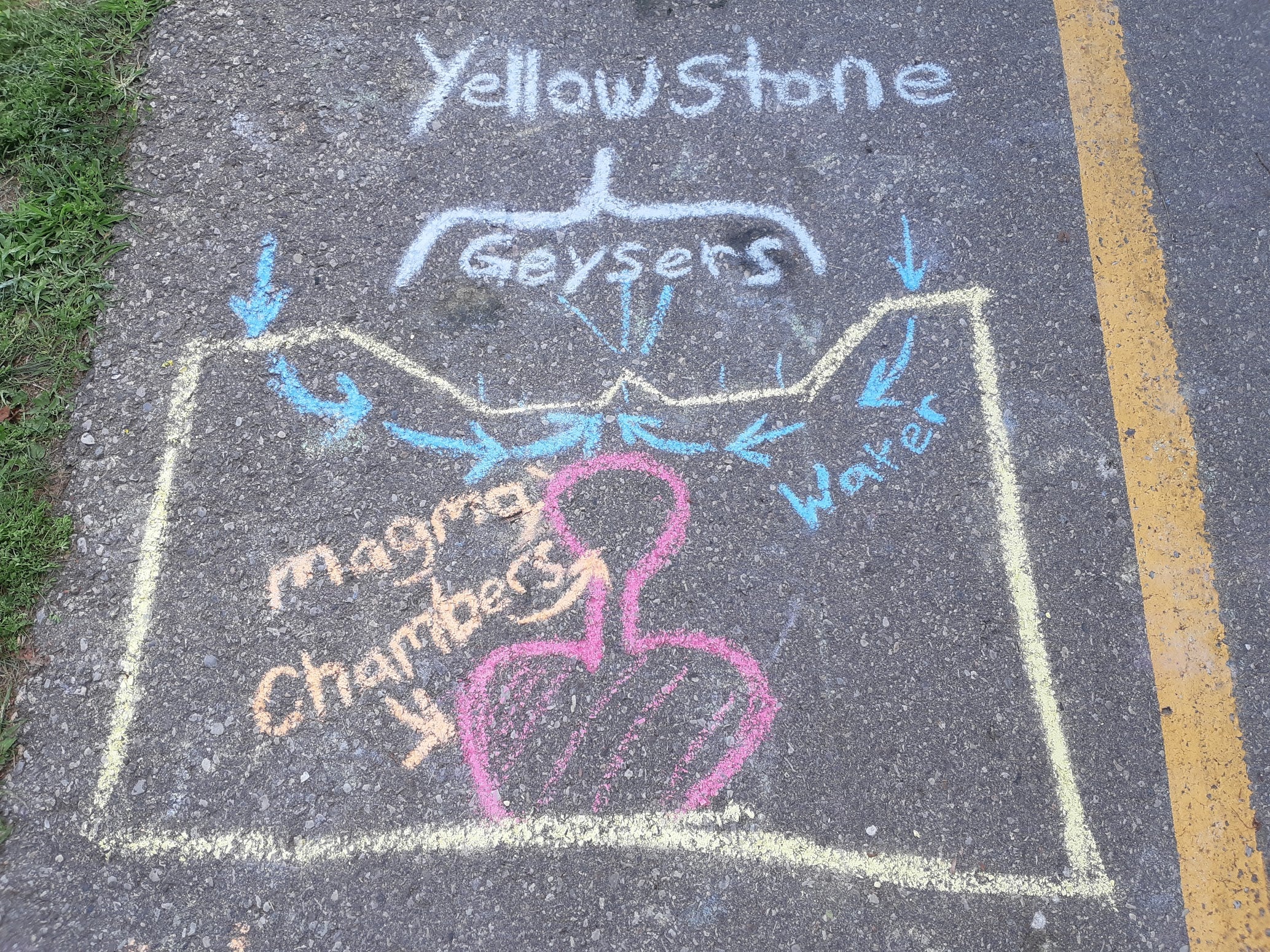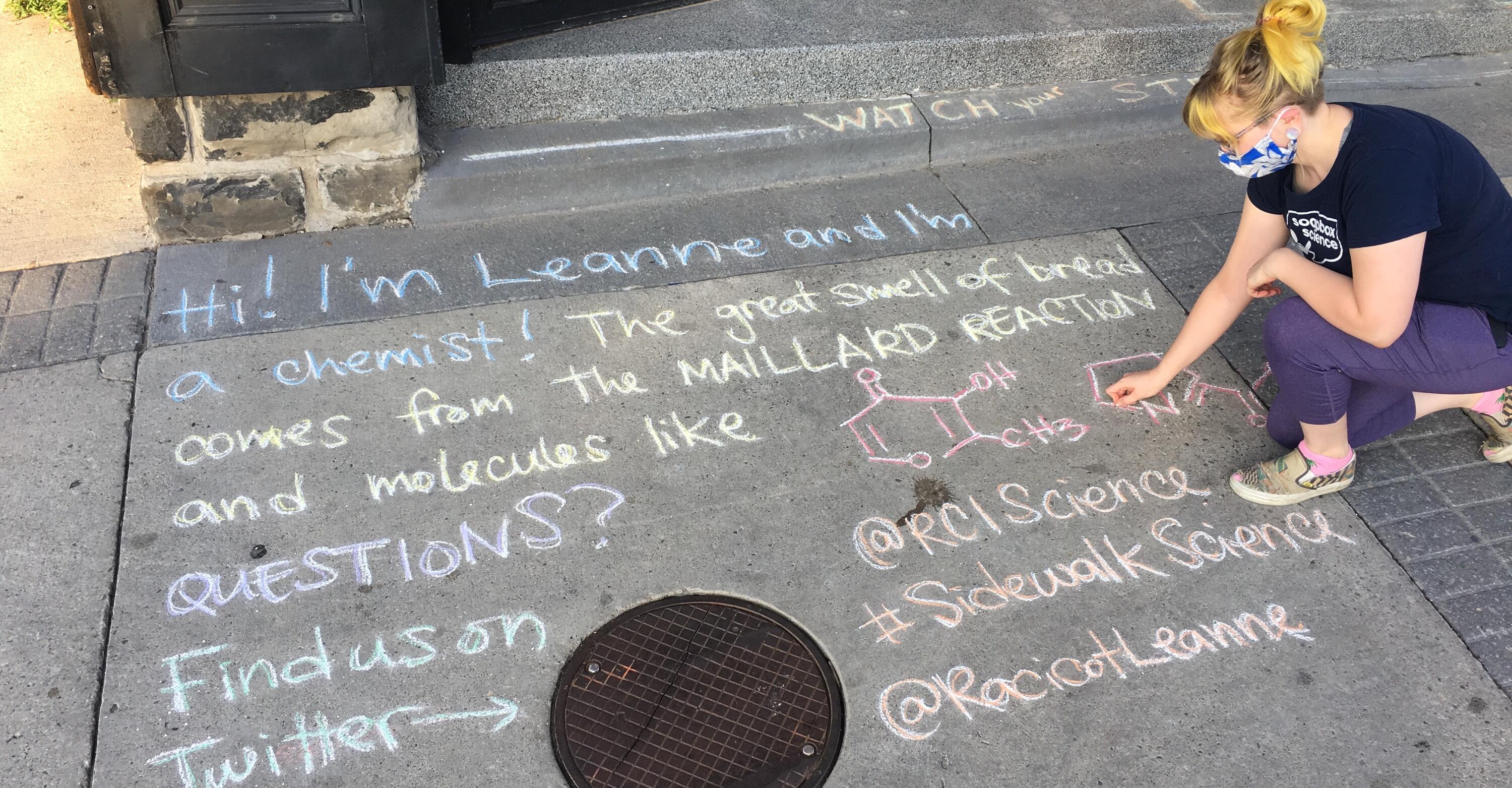During these unusual times of isolation and social distancing, Waterloo scientists have found a new way to engage with the local community and share their research.
The Royal Canadian Institute (RCI) of Science has invited scientists across the country to share their research with their neighbours, using nothing more than a spot on the sidewalk and a piece of chalk. The initiative is called Sidewalk Science.
Scientists find a piece of sidewalk, introduce themselves, describe their research in plain language and invite the public to ask questions.
RCI Science hopes the campaign will raise the profile of scientists across Canada, while encouraging them to have fun. Usually, RCI Science hosts in-person events where scientists can showcase their research, but most events have been moved online because of the pandemic.
"We believe that science is vital to a strong society and right now I think that's very evident, and we're very pleased that Canadians have been supporting, listening to science to get us through this current pandemic situation," said Kirsten Vanstone, RCI Executive Director.
Ashley Bansci, School of Pharmacy
Pharmacist and School of Pharmacy Doctoral student, Ashley Bancsi, and her supervisor Prof. Michael Beazely also participated. Their piece of science was at the Kitchener Market.
Her research focuses on community pharmacy take-home naloxone programs in Canada. She's designing an educational training program for community pharmacists that targets specific problems pharmacists face when offering naloxone kits. She hopes to increase the number of pharmacies offering naloxone kits by providing: ways that pharmacists can start conversations about naloxone, identify patients who need naloxone kits, implement naloxone regularly within their workflow and address stigma associated with naloxone.
"I participated in Sidewalk Science because it is an easy way to introduce what naloxone is and why it’s needed so that anyone who might be walking into community pharmacies can ask for a kit and benefit from it. It also opens up the conversation, de-stigmatizes, and allows me to educate about common misconceptions."
More people are dying due to opioid-induced respiratory depression since COVID-19 started. Fewer naloxone kits are being distributed due to people staying home more. COVID-19's risk for respiratory health puts more and more people at risk for opioid-induced respiratory depression and death without their knowledge - including those with chronic lung diseases or those on opioid pain medication. Showcasing naloxone on Sidewalk Science demonstrates that COVID-19 and the Opioid Crisis go hand-in-hand and that naloxone is a safe and highly accessible way to save someone’s life.
"This initiative is great to help de-stigmatize naloxone, where a lot of people assume it’s used only for those who consume opioids illicitly. We hope that with this and my research projects we can help get naloxone into the hands that need it most, and educate pharmacists about ways they can dispense naloxone without having to have a patient ask for it or be present in the pharmacy for it."
Carson Kinney, Department of Earth and Environmental Sciences

On July 29th, master's student Carson Kinney participated in RCI's Sidewalk Science. His piece was located at the entrance of the Hillside Trail off of University Avenue across from Carter Ave.
He works in Prof. Chris Yakymchuk's lab and studies the heat of the Earth and how the production or transfer of heat helps with metamorphism and the formation of the Earth's crust.
"I love teaching people about Earth Science and the geysers at Yellowstone are an excellent example of how rocks can affect our lives and how heat transfer can create some amazing features."
He hopes people will learn about why "Old Faithful" erupts and even though we can't see a lot of the geologic processes, they do affect what we see at the surface.
Leanne Racicot, Department of Chemistry

Leanne Racicot, a Chemistry Lab Instructor teaches organic chemistry for non-chemistry majors. She often uses real world examples from the pharmaceutical industry to illustrate some of the methods in the lab.
Originally, she shared some science by the Kitchener market but the rain washed it away. On July 18th, she participated again and shared some science in front of the Golden Hearth Bakery (King and Cedar) in downtown Kitchener.
"As scientist, I think I have some responsibility in helping boost the confidence of the general public to engage with Science more. It’s a part of our daily lives, though many may not realize. Encouraging people to develop their critical sense is particularly important."
I hope they become less scared of chemicals! I also think curiosity is the best quality anyone can have. Most of us walk around with a computer in our pockets, but how many of us use it to look up “why is baked bread so delicious but raw flour is not appealing”? Hint: it’s the Maillard reaction that is responsible for the creation of the delicious molecules giving the caramelized and roasted flavours.
Visitors to Golden Hearth Bakery enjoyed the slice of science when picking up their baked goods.